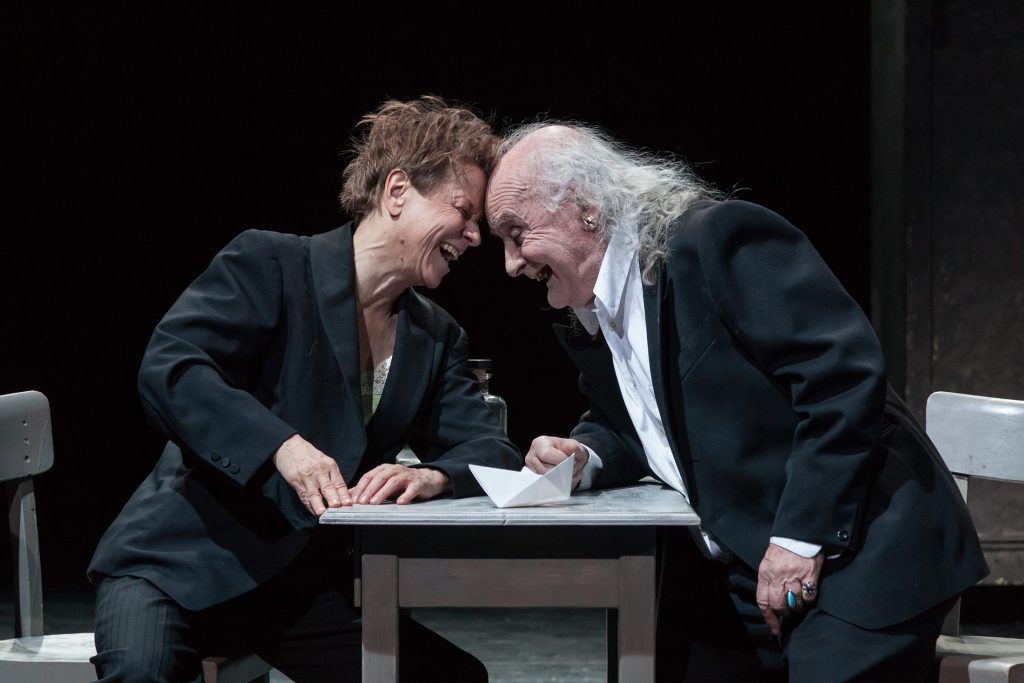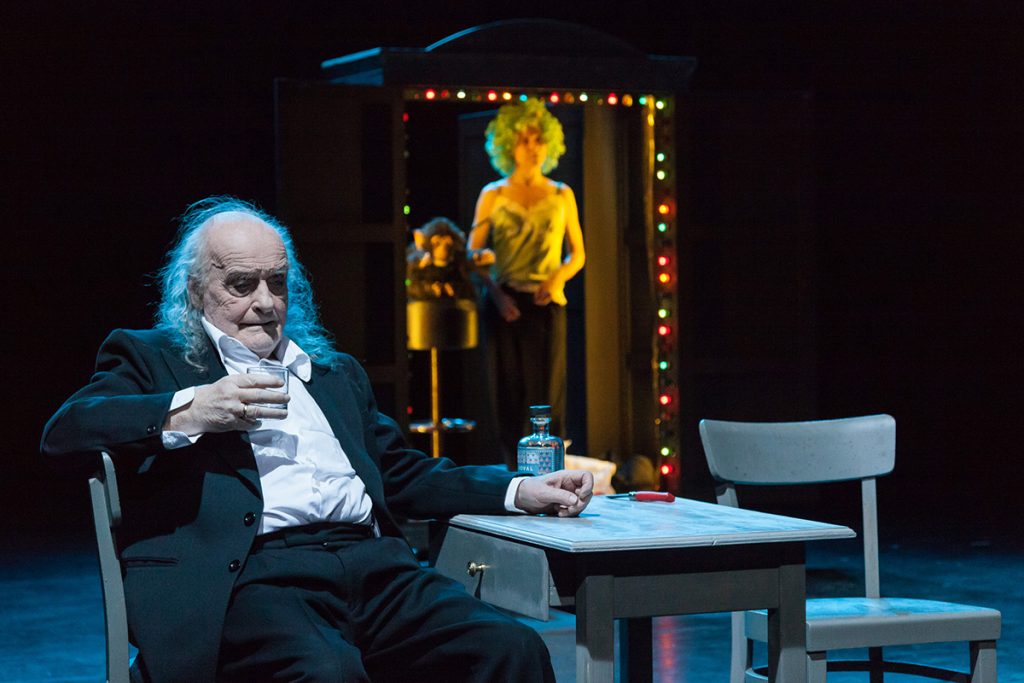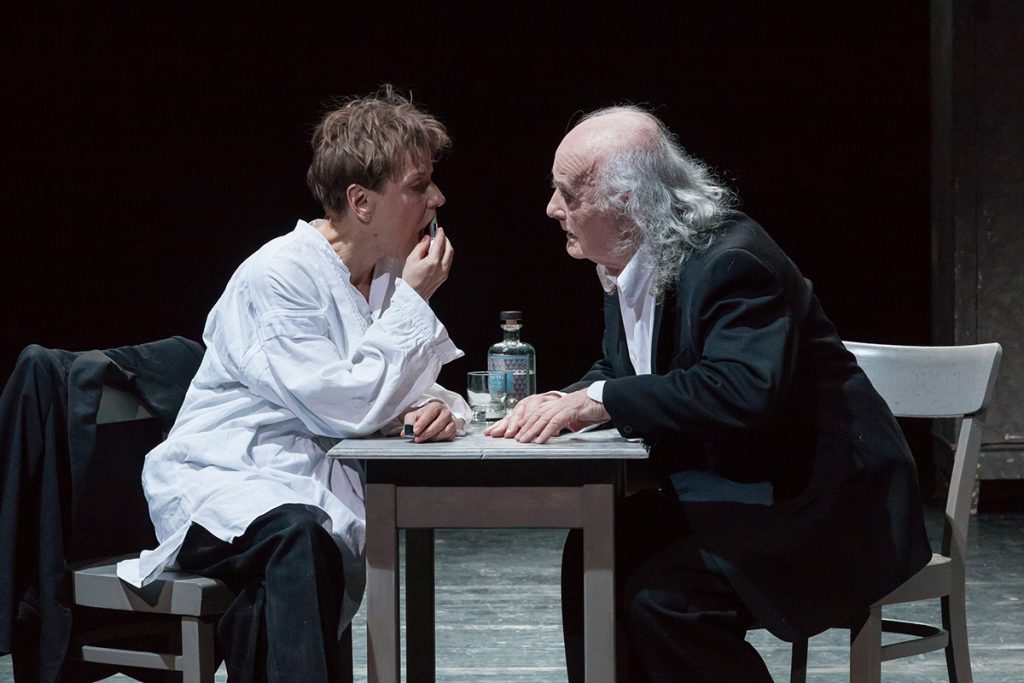
Photography by J. Schmitz
Yesterday was a busy day of theatre, and started with Henrick Ibsen’s Peer Gynt in a German language production by Theater an der Ruhr. This is the third Ibsen piece I’ve seen in the past 30 months, and all have been in different languages: Hedda Gabler first in Norwegian, in Amsterdam in July 2016, then in Czech in Prague in 2017, now Peer Gynt in German. One of these days I’ll enjoy hearing the words of Ibsen once again, in a language I understand, but for now, surtitles will suffice.

Photography by J. Schmitz
But the words of Ibsen seemed rare in this production. This two-handed presentation was more of a rumination on Peer Gynt, a sort of Meta-Peer Gynt, or, as alluded to in the slug for this post, a couple of clowns interpreting Peer Gynt. The two performers seem to be passing the piece back and forth, between them, as they consider the story, characters, scenes, and settings. First one then the other is the titular Peer, or the father or mother, or Solveig, the desirable neighbour’s daughter, or Ingrid, a former girlfriend of Peer, now seduced by him in the woods, on her wedding day.

Photography by J. Schmitz
For me this performance was so reminiscent of Waiting for Godot, not so much in content as in the feeling one got, in the audience, as two clownish performers tossed language around between them, each holding the story-telling “ball” for a moment or two, commenting upon it, observing it, and then tossing it back. Neither performer, Maria Neumann or Roberto Ciulli, plays any given part for long, and while this can be confusing at times, one soon learns that it doesn’t really matter so much who is playing whom. The cast of forty-odd characters are dispatched with alacrity by this able duo, and we soon just stop bothering to keep track, and enjoy their faces, their pose.
That these two have performed together a long time seems a given, and they are both resident members of the company; Ciulli, and Italian director, being one of the founders.
